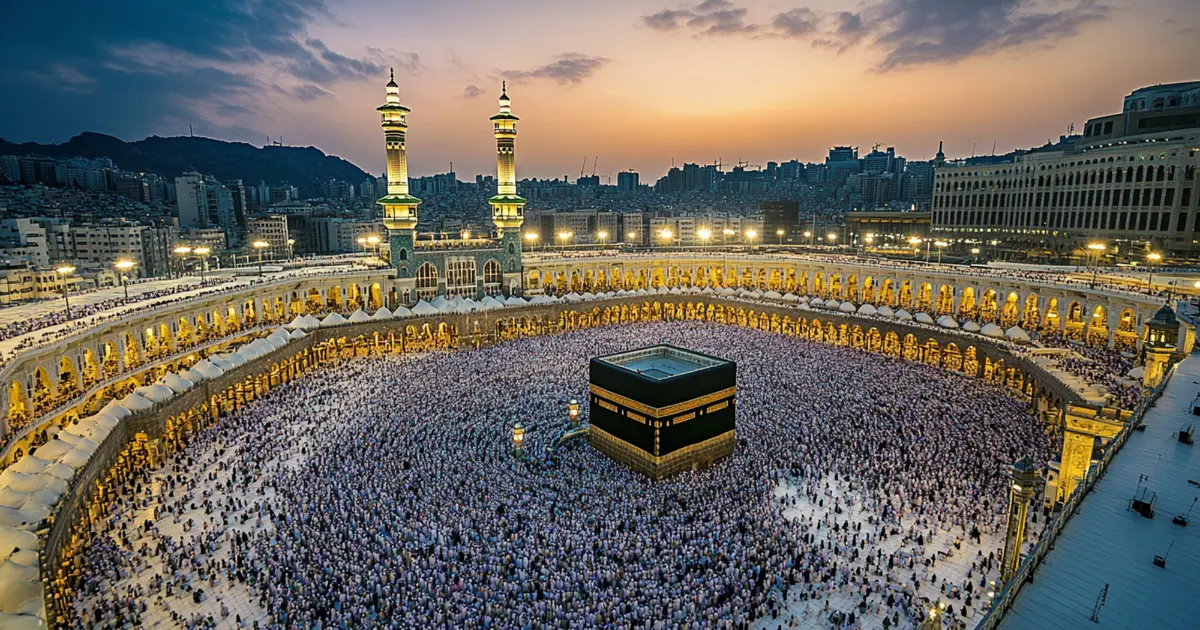Umrah (lesser pilgrimage), undertaken by Muslims of Saudi Arabia to the holy city of Makkah (Mecca), holds immense spiritual meaning for them and should not be taken for granted as an act of worship that holds great spiritual importance in Islam. Although not obligatory like Hajj, Umrah can provide immense rewards in worship that bring immense spiritual benefit – it can even take place any time during the year unlike Hajj that must adhere to specific dates in its lunar calendar.
What Is Umrah? In Arabic, Umrah refers to visiting an urban place or population center; within Islam it refers to pilgrimages to Makkah that incorporate a series of religious rituals performed according to tradition (Sunnah) as described by Prophet Muhammad (peace be upon him), emphasizing its virtues and benefits.
Umrah is not required, yet highly encouraged as part of Sunnah Mu’akkadah (an emphasised tradition). Umrah brings Muslims closer to Allah while providing opportunities to seek forgiveness as well as renew their faith and experience spiritual cleansing.
Umrah Rituals
Umrah includes four core rituals. These rites include:
Before arriving in Makkah, pilgrims must enter into a state of spiritual purity known as Ihram. This involves wearing specific garments–two white unstitched cloths for men, and modest clothing for women–and making an intention (niyyah) to perform Umrah. Pilgrims also recite Talbiyah prayer to declare their intention.
Once at Masjid al-Haram, pilgrims perform Tawaf, which involves circumambulating the Kaaba seven times clockwise as part of their worship of One God; this acts as an affirmation that believers come together around this one spiritual center: Kaaba.
Sa’i: Following Tawaf, pilgrims perform Sa’i to commemorate Hajar (Hagar), Prophet Ibrahim’s (Abraham’s wife) struggle in seeking water for Ismail (Ishmael). This act serves to symbolize her struggle of searching between hills in search of water to supply Ismail (Ishmael).
Halq or Taqsir: As part of their ritual for spiritual renewal and humility, men participate in cutting off or shaving all hair (halq), while cutting a small section from women (taqsir) symbolizes spiritual renewal through cutting their locks or shaving the head completely (halq).
Umrah will then be complete and can proceed as scheduled.
Umrah is more than just physical travel – it provides Muslims the chance to reconnect spiritually as well. Muslims can devote this journey entirely to worshipping, reflecting and repentance – from standing before the Kaaba and praying in Masjid al-Haram to following in the footsteps of prophets’ footsteps – offering peace and a deeper sense of Islamic history and belief.
“Performing Umrah is expiation for sins committed between visits” (Bukhari and Muslim), according to Prophet Muhammad (peace be upon him), underscoring its immense spiritual benefits. This Hadith emphasizes this spiritual benefit associated with Umrah pilgrimages.
Preparing for Umrah
Preparation for Umrah involves both spiritual and practical preparation. Pilgrims should make time to purify their intentions, seek forgiveness from family and learn about rituals before traveling on this pilgrimage. Logistically speaking, preparation should include procuring visas and accommodations, while assuring good physical health so the trip goes as smoothly as possible.
Today, travel agencies and Umrah packages make this pilgrimage more accessible to Muslims around the globe, while Saudi authorities upgrade facilities and infrastructure annually in order to welcome millions of pilgrims on pilgrimages.
Conclusion Umrah is a spiritual pilgrimage designed to strengthen one’s faith, ask forgiveness of Allah, and reconnect deeply with Islamic tradition. Each Umrah brings Muslims closer to Allah while reinvigorating commitment to Islam’s values – for many Muslims globally it remains among their most prized acts of worship.



